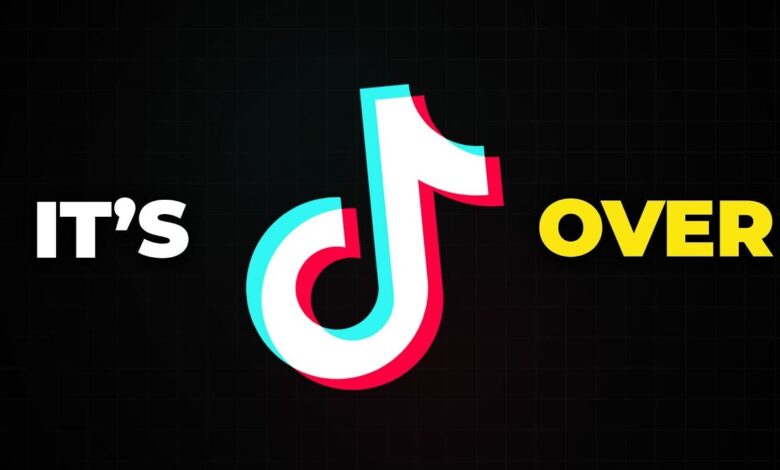The TikTok Ban: What You Need to Know

The Supreme Court has refused to stay the execution of a law that, effective January 19th, forces TikTok to be sold to a U.S. company or shut down. This decision reflects the growing concern among U.S. lawmakers regarding the influence of foreign-owned technology companies. Many Americans are reacting strongly to this decision, especially since TikTok’s Chinese parent company, ByteDance, could potentially share user data with the Chinese government. Ironically, users can already find a TikTok clone operated by the Chinese government, which raises questions about the motivations behind the ban.
The Rise of TikTok
Launched in 2016, TikTok is a foreign-owned tech platform that has gained immense popularity, boasting over 1.5 billion active users worldwide, including approximately 150 million Americans. Many users have found their livelihoods on the platform, creating short films that have become a cornerstone of their careers. TikTok creators argue that other social media platforms do not provide the same organic reach and collaborative tools that TikTok offers. They often state, “They have posted the same content on other platforms for years, but only TikTok has fostered their communities and allowed them to reach broad audiences.”
The Generational Divide
Members of Congress, most of whom did not grow up with social media, may struggle to understand the implications of modern technology. The average age of a senator is 64, and for House members, it is 58. This generational gap could contribute to the government’s challenge in addressing the rapidly evolving digital landscape while balancing national security and civil liberties.On April 24, 2024, Congress enacted the Protecting Americans from Foreign Adversary Controlled Applications Act. This law prohibits the distribution and maintenance of applications controlled by foreign adversaries, identifying China, North Korea, Russia, and Iran as those adversaries. The law specifically targets ByteDance, requiring them to sell TikTok to eliminate “Foreign Adversary Control” within 270 to 360 days. Failure to comply would result in a ban.
Legal Challenges Ahead
Historically, the courts have deferred to the federal government in matters of national security. However, in 2020, the federal courts blocked two executive orders issued by then-President Donald Trump attempting to ban TikTok. Therefore, many legal commentators believe the new law’s constitutionality is questionable. TikTok and a group of its users have once again sued the government, arguing that the Act is an unconstitutional intrusion on free speech rights, stating, “By banning all online platforms and software applications offered by TikTok and all ByteDance subsidiaries, Congress has made a law curtailing massive amounts of protected speech.”TikTok contends that it is an American company headquartered in Culver City, California, thus entitled to First Amendment rights. TikTok argues that courts should apply strict scrutiny when reviewing such laws. This standard requires the government to demonstrate that the law is the least restrictive means of advancing a compelling governmental interest—a challenging task, especially concerning fundamental rights like freedom of speech.
The Government’s Stance
The U.S. government, on the other hand, argues that the Act does not implicate the First Amendment at all, asserting that TikTok’s status as a subsidiary of ByteDance disqualifies it from free speech protections. The government claims that American users remain free to express themselves on other platforms and would continue to have that freedom even if TikTok divests.The litigation progressed to the U.S. Court of Appeals for the District of Columbia, which upheld the constitutionality of the Protecting Americans from Foreign Adversary Controlled Applications Act. The court concluded that the Act implicates the First Amendment and is subject to heightened scrutiny, potentially applying either strict or intermediate scrutiny.The Court of Appeals affirmed that the government has compelling national security interests and justified the need for the Act. They acknowledged that laws targeting specific speech are presumptively unconstitutional, yet determined that China poses a “hybrid commercial threat” due to its data collection laws.
Ongoing Debate on Data Privacy
TikTok challenged the government’s justifications, arguing that if data collection is indeed a national security threat, Congress should enact a data privacy law that would apply to all tech companies, not just TikTok. While the court recognized that the Act does not fully address the data collection risks posed by the PRC, it argued that it was still a step in the right direction.The court also dismissed TikTok’s suggestions of less restrictive alternatives, maintaining that the secret manipulation of content on TikTok by the Chinese government poses a grave threat to national security. The court contended that no amount of government speech could mitigate the risk of content manipulation as effectively as divestiture.
Conclusion
As the legal battle over TikTok continues, the implications of this case extend beyond the platform itself. The intersection of technology, national security, and free speech rights invites a broader discussion about how we regulate digital spaces in a globalized world. The ongoing developments will undoubtedly shape the future of social media in America and the legal frameworks surrounding it.
In case you have found a mistake in the text, please send a message to the author by selecting the mistake and pressing Ctrl-Enter.
https://techplanet.today/storage/posts/2025/01/20/y0GDZPGYaxmooDu2RVYD77xWXLhkPoN0WM35LTS3.jpg
2025-01-19 23:30:49




